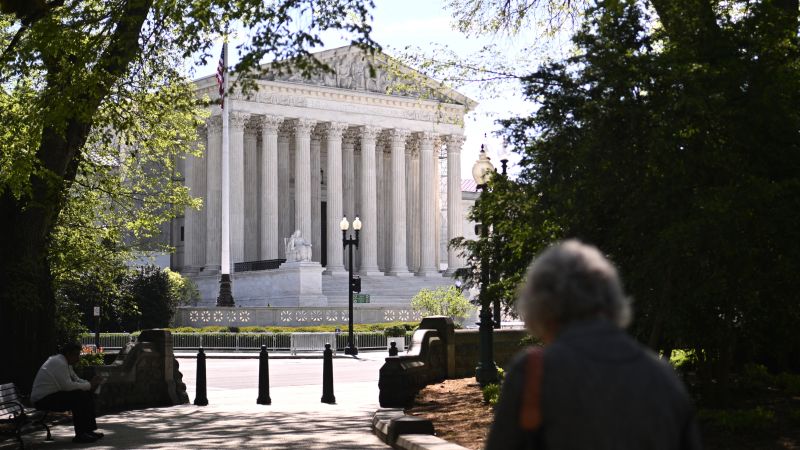The federal case against former President Donald Trump for trying to overturn the 2020 election remains in limbo as he claims immunity from criminal prosecution for anything related to his presidency. The US Supreme Court is hearing arguments about whether Trump should have blanket immunity from criminal prosecution, a question that raises concerns about the power of the presidency and accountability. The court’s decision regarding Trump’s immunity could have far-reaching implications for future presidents and their ability to face legal consequences for their actions.
The argument for Trump’s immunity from federal prosecution is based on the idea that his efforts to overturn the election were within the “outer perimeter” of his official duties as president. Trump’s lawyers want to extend the immunity from civil lawsuits related to official acts to immunity from criminal prosecution. However, previous Supreme Court rulings have shown that presidents do not have blanket immunity and can be subject to the justice system for their actions while in office, as seen in the case of United States v. Nixon.
Questions about the impartiality of Supreme Court justices, particularly those appointed by Trump, in cases related to him have raised concerns about the integrity of the legal system. Justices Thomas, Gorsuch, Kavanaugh, and Barrett have not recused themselves from cases involving Trump, despite their ties to him. The court’s handling of Trump’s immunity claim has been criticized for potentially delaying the resolution of the criminal case before the 2024 election, raising questions about whether the court is giving special treatment to the former president.
The possibility of Trump being granted full immunity by the Supreme Court raises concerns about accountability and the limits of presidential power. If Trump and all future presidents are given full immunity, it could undermine the principles of impeachment and the rule of law. Additionally, questions about self-pardons and the potential implications for Trump’s legal troubles in state courts further complicate the issue of presidential immunity and the limits of executive authority. The Supreme Court’s decision on Trump’s immunity claim could have a significant impact on the balance of power between the executive branch and the judicial system.
The historical context of presidential immunity, dating back to Reconstruction, highlights the ongoing debate over the extent of executive power and accountability. Previous court cases have addressed forms of presidential immunity, but the question of criminal immunity for a sitting president is relatively unprecedented. The Supreme Court’s handling of Trump’s immunity claim will set a precedent for future cases involving presidential accountability and the boundaries of executive authority. The court’s decision could shape the legal landscape for future presidents and establish guidelines for holding them accountable for their actions while in office.


